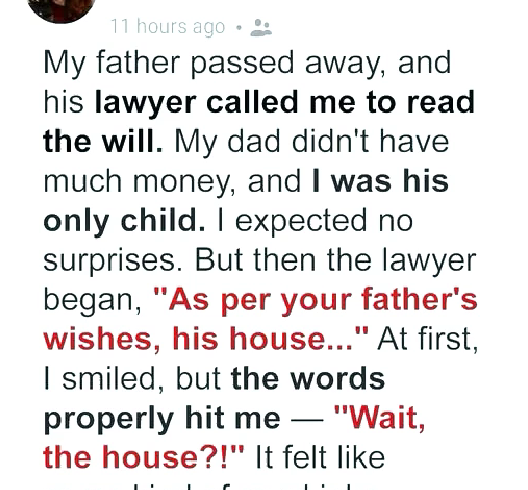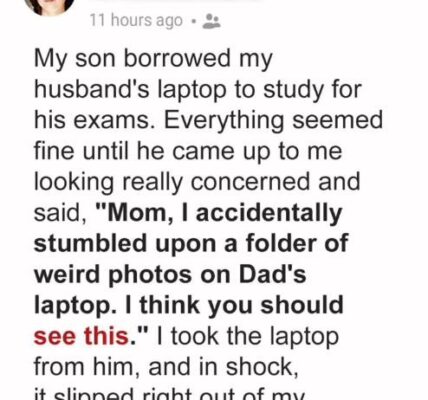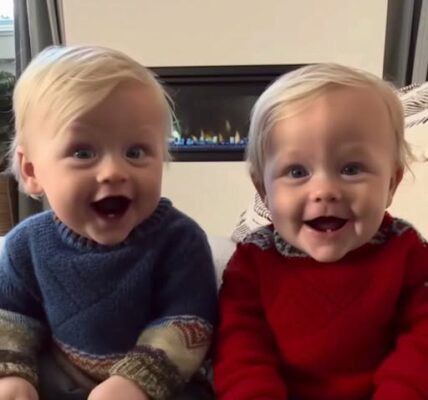The Inheritance Secret: The Day I Discovered the Stranger in My Father’s House Was My Mother
When My Father’s Will Left Me a Mystery House, I Met a Woman Who Claimed It Was Hers—Her Secret Changed Everything I Knew About My Past
The rain pounded relentlessly on the rooftops as I tightened my coat and quickened my pace toward the notary’s office.
My father was gone. The thought echoed through me like a hollow bell. He had been my rock, yet in his final years that rock had crumbled under debts I could barely comprehend. Now even our family home was slipping through my fingers, soon to be repossessed.
“What’s left?” I whispered to myself as I reached the office door, pausing to draw a shaky breath.
The hallway smelled of dust and old paper, the dim light making the faded paintings on the walls look like memories themselves. I was ushered in, and the notary, a gray‑haired man with kind eyes, motioned for me to sit.
“Let’s get started,” he said, shuffling through a stack of documents.
I nodded numbly, barely listening. My mind wandered to nights by the fireplace with Dad, when he promised he had told me everything. But the words of the notary snapped me back.
“A house.”
I blinked. “I’m sorry—what?”
“A house,” he repeated, sliding a document toward me. “Not your current residence, but another property your father owned.”
I stared at the paper as if it might burst into flames. Another house? He had never mentioned this.
My hands trembled as I picked up the documents. The address was unfamiliar, the revelation disorienting. Why would he hide this from me? Was this his attempt to leave me something, anything?
I knew I had to see it.
The next morning, under a brittle autumn sky, I took a day off work and drove down a winding road lined with golden‑leaved trees. When I finally arrived, the sight made me stop in my tracks. The house looked old but not abandoned. Large windows caught the light; the porch was freshly painted though moss crept across the roof. It looked almost enchanted—yet I felt unease coil in my chest.
“This is it,” I murmured, gripping the key.
But the key didn’t work. I jiggled it, tried again. Nothing. I walked around, peering through a window, when the door suddenly flew open.
“Can I help you?” a stern voice demanded.
A woman, perhaps in her sixties, stood there. Sharp features, eyes bright with defiance despite their weariness.
“I… I believe this is my house,” I stammered, holding up the key. “It was left to me by my late father.”
Her brows shot up. “Your house? I’ve lived here for twenty years. I’ve paid the bills, repaired every leak, fixed this roof. This isn’t your house, and I’m not leaving.”
My grip tightened on the key. “Look, I have the paperwork. Legally, it’s mine.”
Paperwork means nothing to me,” she shot back. “I bled for this place. You think I’ll walk away because of a piece of paper?”
Anger and grief surged. “I’ve lost my home, my father—everything! This is all I have left.”
Her eyes softened for a fraction of a second, but her shoulders stayed rigid. “Name’s Deborah,” she muttered finally, stepping aside. “You can come in, but don’t expect me to roll out a welcome mat.”
The air inside smelled of wood polish and time. It wasn’t just a house. It was Deborah’s home. But it was also mine.
Living under the same roof became a quiet war. At midnight she’d bang pots in the kitchen for no reason. In the mornings the water would mysteriously stop running just as I brushed my teeth. My keys, shoes, even my phone charger would vanish—only to reappear in strange places.
I was furious, but part of me saw through it. There was loneliness behind her stubbornness, a desperate cling to something she couldn’t bear to lose.
By Monday I was drained but resolute. I needed this house. I needed answers. But when I stepped outside to collect the clean dress I’d left on the line overnight, I found it crumpled in the mud, streaked with dirt.
I stormed inside, fury breaking through. “You threw my clothes in the mud!”
Deborah sat calmly with her tea, barely glancing up. “Something wrong?”
“You’ve been tormenting me since I got here. Why?!”
She set her cup down, her hands trembling ever so slightly. “You don’t belong here,” she said flatly. “This house isn’t yours. It was never supposed to be yours.
I froze. “What do you mean?”
She rose slowly, voice tight with grief and rage. “Your father stole everything. He took you—our daughter—and left me with nothing.”
I stared. “What?”
Her eyes glistened. “He told you I was dead, didn’t he? But I am your mother.”
My mind reeled. “No… that’s impossible.”
She pulled a bracelet from her pocket, her lips trembling as she held it out. My name and date of birth were engraved on it. My fingers shook as I held it.
“Why?” I whispered.
Her anger cracked into raw pain. “Because I left. I thought I could build a better life, but I was wrong. When I came back, your father refused to forgive me. He took you, and the court sided with him. I lost everything—including you.”
The room spun. The woman I had resented was my mother.
She drew a shaky breath. “He left me this house… a memory of what we once had, but also a reminder of what he couldn’t bear to face again.”
I sat down hard, the anger draining from me, leaving only shock and aching sadness.
The days until the court hearing were quiet but heavy. When the ruling came, it was clear: legally, after decades of paying bills and repairs, Deborah was the rightful owner.
I packed my suitcase in silence, preparing to leave. She watched from the kitchen doorway.
“Well,” I said softly, “I guess this is goodbye.”
“Wait,” she said, her voice breaking.
I turned.
“I don’t want you to go,” she whispered. “I’ve spent years hating myself for leaving, and I took it out on you. But you’re my daughter, Emily. I can’t lose you again. Can we… try?”
The words pierced straight through my defenses. I stepped forward and hugged her. She stiffened, then held me tight, both of us crying quietly.
“I’m sorry too, Mom…”
In the weeks that followed, we sifted through old boxes, unearthed photographs and letters, and began mending what had been broken for so long. The house that once felt like a battleground became something else entirely—proof that sometimes family isn’t about who’s right or who wins, but who stays to heal what’s left.




